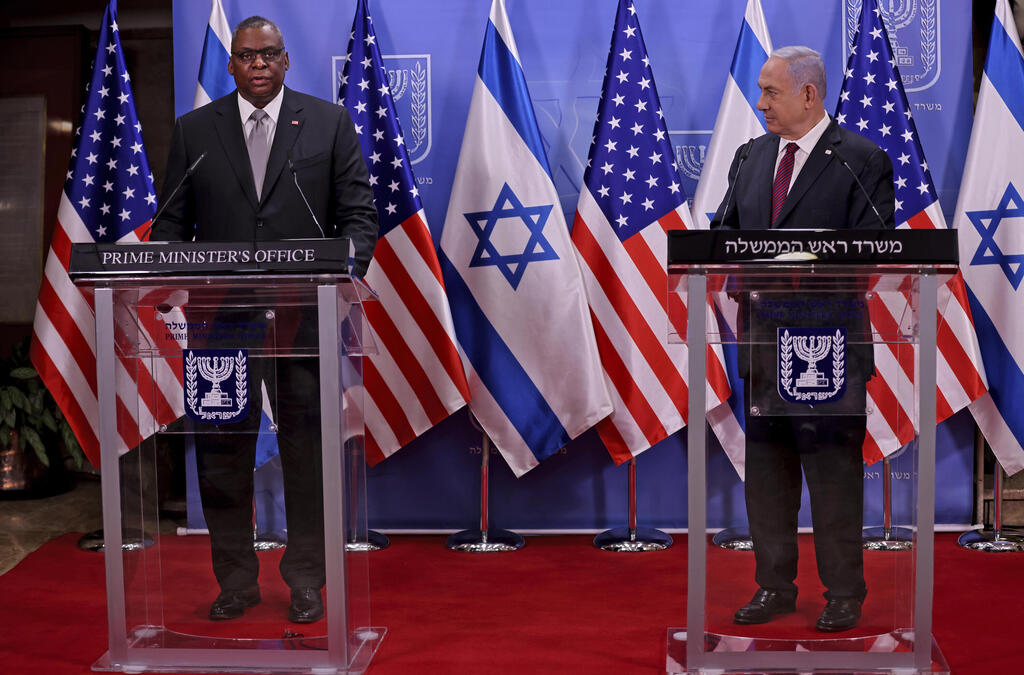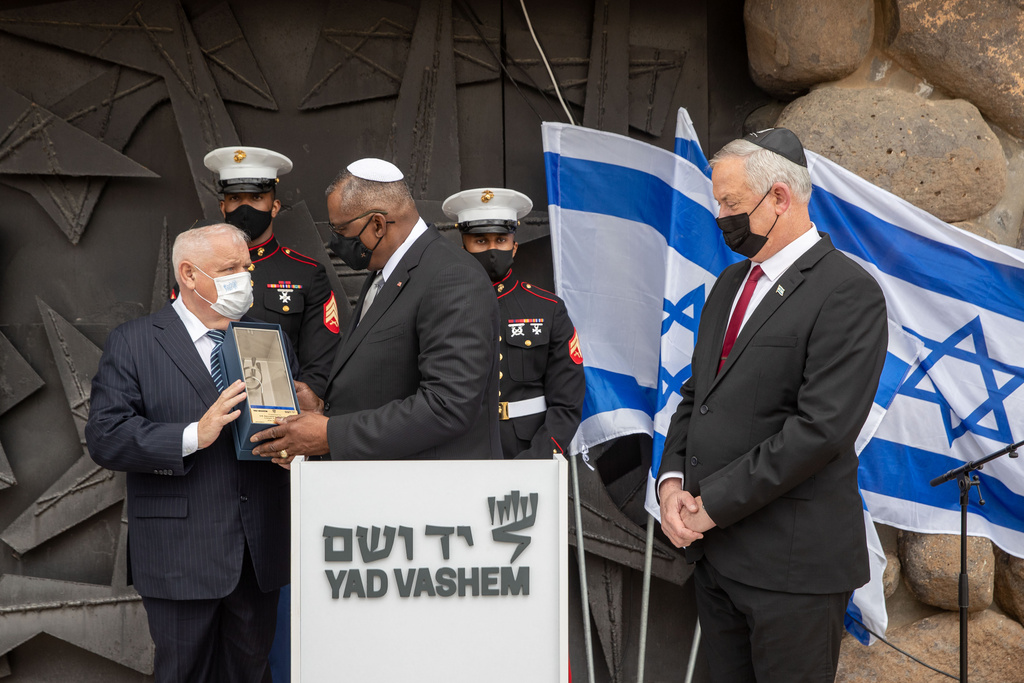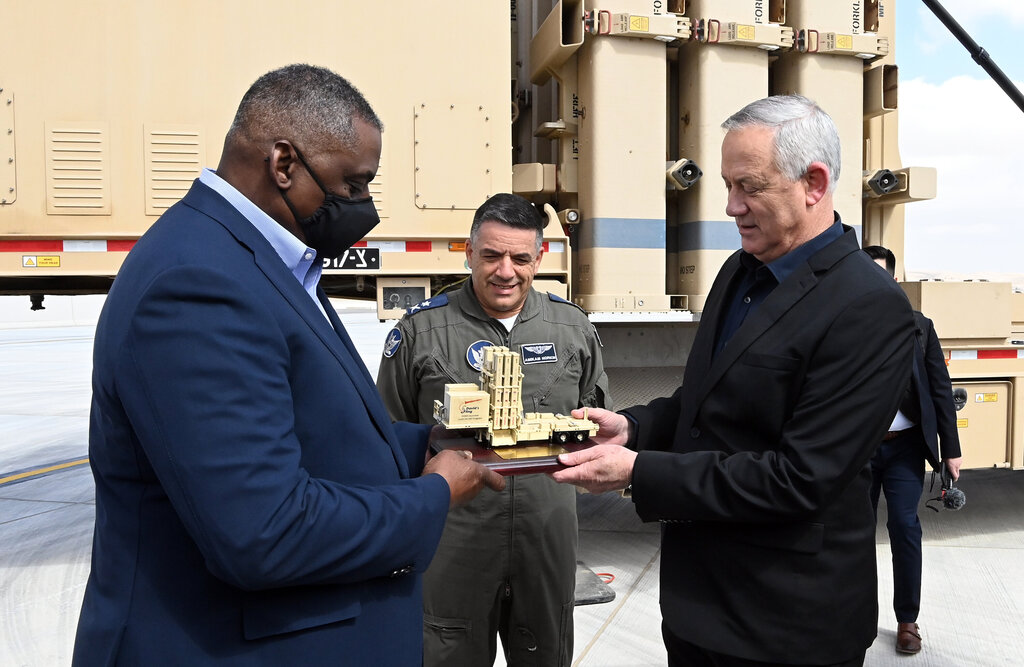Prime Minister Benjamin Netanyahu said on Monday that Iran has never given up efforts to obtain nuclear weapons and that Israel will not allow Tehran to build them.
The premier, addressing reporters with visiting U.S. Defense Secretary Lloyd Austin at his side, made no comment about Iran's accusation that Israel had sabotaged its key Natanz nuclear site.
3 View gallery


U.S. Defense Secretary Lloyd Austin, left, and Prime Minister Benjamin Netanyahu give statements after their meeting Monday, at the prime minister's office in Jerusalem
(Photo: AP)
"Iran has never given up its quest for nuclear weapons and the missiles to deliver them," Netanyahu said.
"I will never allow Iran to obtain the nuclear capability to carry out its genocidal goal of eliminating Israel."
Austin was in the midst of the second day of his diplomatic tour in Israel, the first U.S. official to visit the country since U.S. President Joe Biden took office.
Speaking after Netanyahu, he did not explicitly mention Iran in his remarks, saying that he decided to travel to Israel to "express our desire for earnest consultations with Israel, as we address shared challenges in the region."
(Video: Alex Gambourg)
Austin affirmed the Biden administration's support for Israel's security and qualitative military edge in the region.
"And so we discussed ways to deepen our longstanding defense relationship in the face of regional threats and other security challenges and I affirm the department’s support for our ongoing diplomatic efforts to normalize relations between Israel and Arab and Muslim-majority nations," he said.
"I am confident that together we can chart a path toward enduring peace in this region and advance open and stable order — now, and in the years ahead."
3 View gallery


U.S. Secretary of State Lloyd Austin during his visit to Yad Vashem Monday in Jerusalem
(Photo: Ohad Zwigenberg)
A also spoke of being moved by his visit to Yad Vashem and said that the memory of the victims and survivors of the Holocaust must "always be a solemn reminder of our duty to be ever-vigilant against mass atrocities."
Before their meeting, the European Union warned against attempts to derail talks to return the U.S. to the Iran nuclear deal.
"We reject any attempts to undermine or weaken diplomatic efforts on the nuclear agreement," EU spokesman Peter Stano said, insisting that "we still need to clarify the facts" over events at the Iranian nuclear site.
3 View gallery


U.S. Secretary of Defense Lloyd Austin and Defense Minister Benny Gantz during a visit of the IAF Nevatim Base Monday
(Photo: Matty Stern/U.S. Embassy Jerusalem)
During a joint press conference with Austin Sunday, Defense Minister Benny Gantz told the Pentagon chief that Israel views the United States as a "full partner" and will work closely with its ally to ensure any new diplomatic accord with Iran does not compromise regional security.
"And we will work closely with our American allies to ensure that any new agreement with Iran will secure the vital interests of the world and the United States, prevent a dangerous arms race in our region and protect the State of Israel," he said.
Austin for his part told his host that Washington views the alliance as "central to regional stability" as well as "enduring and ironclad" but did not address the Iranian threat in his speech.
First published: 16:57, 04.12.21



